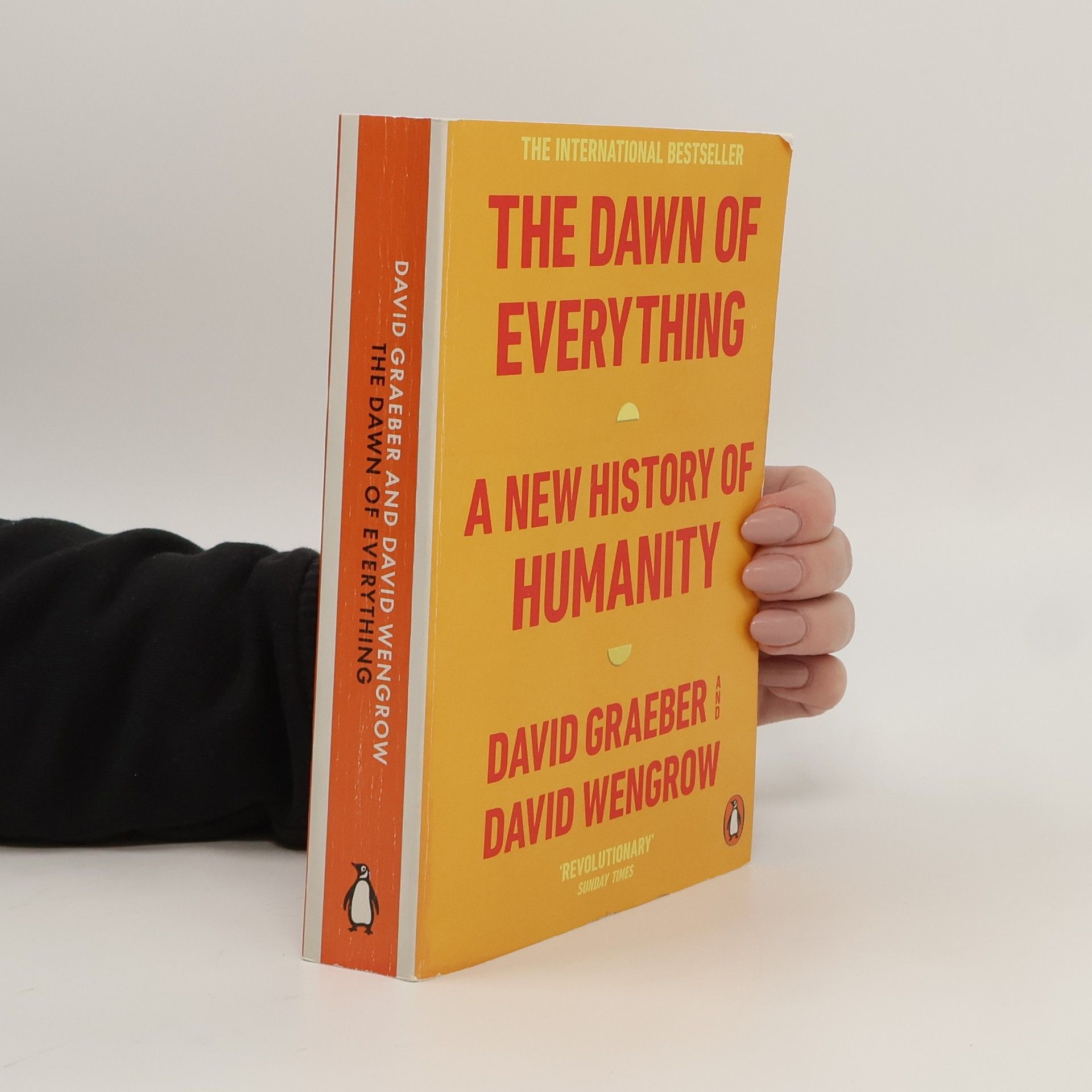David Graeber Libros
David Graeber fue un antropólogo y anarquista estadounidense cuyo trabajo exploró temas como la deuda, el trabajo y la anarquía. Su enfoque estaba profundamente arraigado en la antropología social, pero se extendía más allá del ámbito académico con su fuerte compromiso con el activismo político. La escritura de Graeber era conocida por su agudeza y su capacidad para conectar conceptos teóricos con las realidades cotidianas y los desafíos de las estructuras sociales. Sus análisis a menudo destacaban las formas invisibles de poder y control dentro de la sociedad moderna.







Revolutions In Reverse: Essays On Politics, Violence, Art, And Imagination
- 114 páginas
- 4 horas de lectura
Today's capitalist systems appear to be coming apart - but what is the alternative? In a generation or so, capitalism may no longer exist as it's impossible to maintain perpetual growth on a finite planet. David Graeber explores political strategy, global trade, violence, alienation and creativity looking for a new common sense.
David Graeber challenges mainstream liberal and leftist thought through his extensive experience as an ethnologist and activist. He explores a new genealogy of anarchist thought, inspired by movements like Occupy Wall Street, aiming to inspire fresh political ideas for the 21st century, emphasizing collective action over individualism.
Possibilities
- 433 páginas
- 16 horas de lectura
An anthropologist investigates the revolution of everyday life.
Frei von Herrschaft
- 254 páginas
- 9 horas de lectura
Sind anarchistische Lebensformen der Schlüssel zu einer gerechteren Gesellschaft? Der Anthropologe David Graeber ebnet spannenden Forschungsergebnissen endlich den Weg in den allgemeinen Diskurs.
Debt : the first 5000 years
- 542 páginas
- 19 horas de lectura
The groundbreaking international best-seller that turns everything you think about money, debt, and society on its head—from the “brilliant, deeply original political thinker” David Graeber (Rebecca Solnit, author of Men Explain Things to Me) Before there was money, there was debt. For more than 5,000 years, since the beginnings of the first agrarian empires, humans have used elaborate credit systems to buy and sell goods—that is, long before the invention of coins or cash. It is in this era that we also first encounter a society divided into debtors and creditors—which lives on in full force to this day. So says anthropologist David Graeber in a stunning reversal of conventional wisdom. He shows that arguments about debt and debt forgiveness have been at the center of political debates from Renaissance Italy to Imperial China, as well as sparking innumerable insurrections. He also brilliantly demonstrates that the language of the ancient works of law and religion (words like “guilt,” “sin,” and “redemption”) derive in large part from ancient debates about debt, and shape even our most basic ideas of right and wrong. We are still fighting these battles today.
Direct Action: An Ethnography
- 600 páginas
- 21 horas de lectura
A radical anthropologist studies the global justice movement.
The democracy project : a history, a crisis, a movement
- 352 páginas
- 13 horas de lectura
On August 2 2011, David Graeber and a group of veterans from various European, Middle Eastern and Asian activist movements answered the Adbusters provocation to 'occupy Wall Street'. This book tells the story of Occupy Wall Street's origins and explains how the movement works and how readers can replicate its method in their communities.
"A trailblazing account of human history, challenging our most fundamental assumptions about social evolution-from the development of agriculture and cities to the emergence of "the state," political violence, and social inequality-and revealing new possibilities for human emancipation." -- Publisher.
The Utopia of Rules
- 272 páginas
- 10 horas de lectura
"Where does the desire for endless rules, regulations, and bureaucracy come from? How did we come to spend so much of our time filling out forms? And is it really a cipher for state violence? To answer these questions, anthropologist David Graeber ... traces the peculiar and unexpected ways we relate to bureaucracy today, and reveals how it shapes our lives in ways we may not even notice"--Jacket

